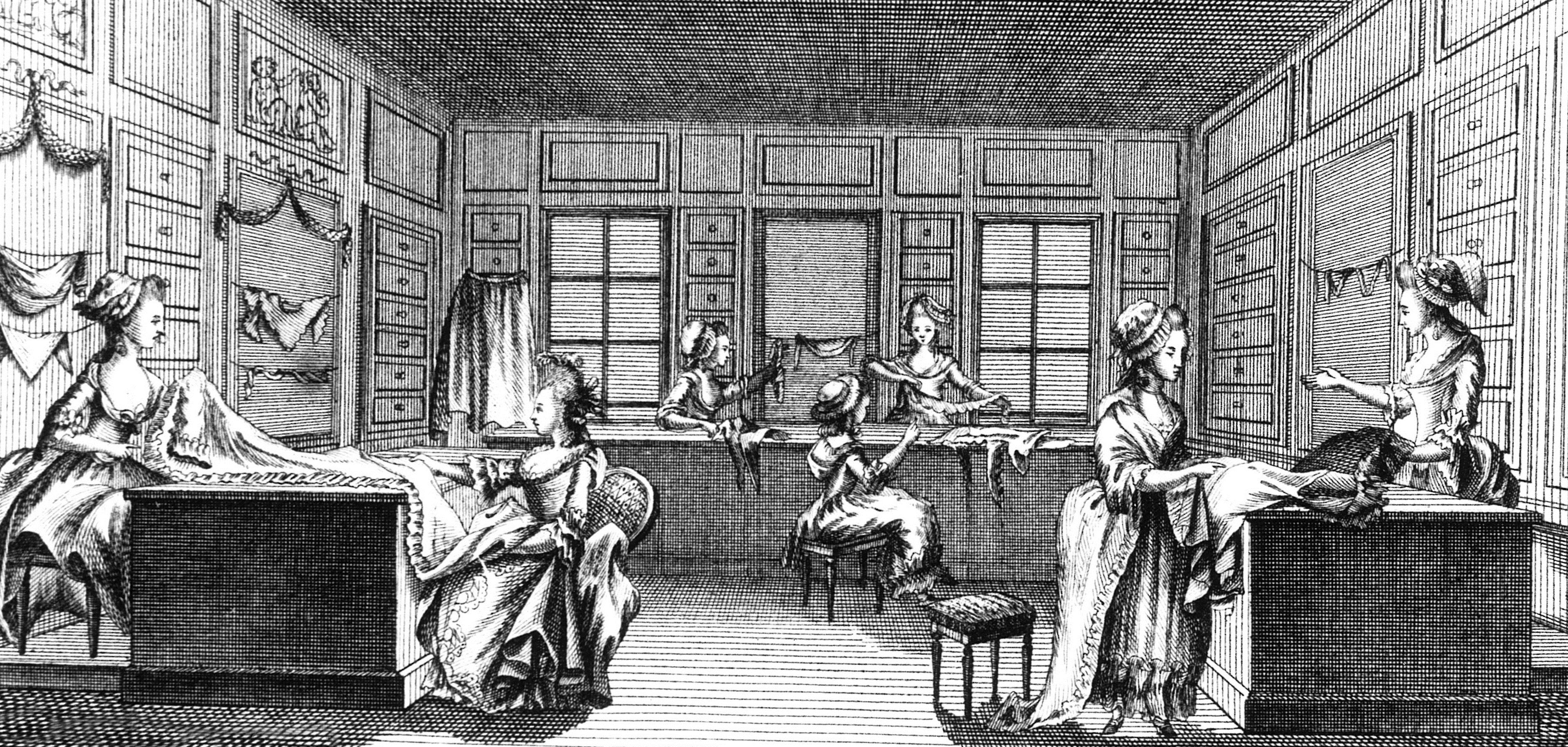Clare H Crowston
 Accounting for Rose Bertin: Credit, Fashion, and Gender in Eighteenth-Century France
Accounting for Rose Bertin: Credit, Fashion, and Gender in Eighteenth-Century France
During her Center appointment, Professor Crowston will complete the final stages of her second book, Accounting for Rose Bertin: Credit, Fashion, and Gender in Eighteenth-Century France. The book takes its title from Rose Bertin, fashion merchant to Marie Antoinette and to noble and royal houses across Europe. It combines a cultural history of credit, fashion, and gender with a detailed reconstruction of credit systems in the female-dominated fashion industries of eighteenth-century France.
Female consumers rarely paid cash for clothing but relied instead on a system of extended credit agreements. In turn, female fashion professionals used credit to purchase the cloth, ribbons, feathers, rhinestones, and other items they transformed into the fashions of the day. At a time when the annual salary of a male worker averaged 200 livres, Rose Bertin’s 1813 estate claimed outstanding credit accounts of 1.5 million livres.
In illuminating this market of deferred payments—and women’s place within it—Professor Crowston contributes to ongoing reassessment of the role of credit in European economic development. Long considered backward in comparison with England, the eighteenth-century economy in France in fact fostered a thriving informal credit system in which women played important roles as investors, traders, and consumers.
The book also discusses that period’s use of the term "credit" to describe social, rather than economic, capital. This type of credit, in the form of influence and favors, was as important as access to loans and deferred payment. Indeed the boundaries between economic and social capital were extremely porous, as money, gifts, services, and commodities circulated through intertwined and overlapping networks. The interaction between economic and social credit provides new insight into the strategies and sensibilities of early modern men and women, with implications for the modern market system that emerged.
